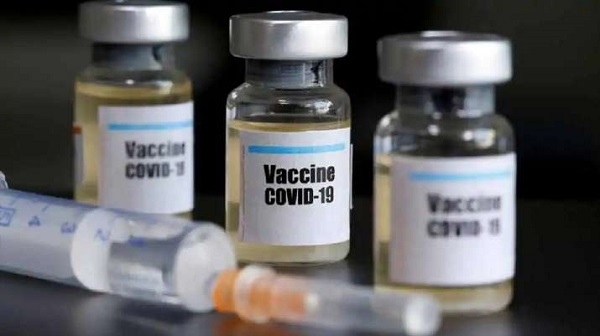Oxford University's COVID-19 vaccine shows positive results in first phase of human trials
Total Views | 12
London, July 21: An experimental coronavirus vaccine developed by UK's Oxford University and drugmaker AstraZeneca revealed that the vaccine shows positive results in the first phase of human trials. It suggested that it is safe and induces an immune response to Covid-19. The vaccine is called AZD1222.

The team started working to develop a vaccine against the global threat that is coronavirus in January 2020 and have been working with unprecedented urgency in a race against the coronavirus. A UK Phase I/II trial began in April testing the Oxford coronavirus vaccine ChAdOx1 nCoV-19. The vaccine was given to 1,077 healthy adults aged between 18 and 55 in five UK hospitals on April 23 and May 21, 2020. The median age of participants was 35 years. There were no serious adverse health events related to ChAdOx1 to-19.
According to trial results published in 'The Lancet medical journal', the Covid-19 vaccine prompted no serious side effects and elicited antibodies. The vaccine provoked a T cell response within 14 days of vaccination and an antibody response within 28 days. T-cells are crucial for maintaining protection against the virus for years.
T cell responses targeting SARS-CoV-2 spike protein were markedly increased (in the 43 participants studied), peaking after 14 days. The T cell response did not increase with a 2nd dose of the vaccine, which is consistent with other vaccines of this kind
— The Lancet (@TheLancet) July 20, 2020
The scientists transferred the novel Coronavirus' spike protein to the vaccine to ensure that it resembles the virus which will help teach the human immune system how to attack it.
“There is still much work to be done before we can confirm if our vaccine will help manage the COVID-19 pandemic,” vaccine developer Sarah Gilbert said. “We still do not know how strong an immune response we need to provoke to effectively protect against SARS-CoV-2 infection.”
“We saw the strongest immune response in the 10 participants who received two doses of the vaccine, indicating that this might be a good strategy for vaccination,” Professor Pollard said.
Meanwhile, Phase 3 trials are needed to confirm whether the vaccine would be effective. Oxford and AstraZeneca are collaborating with clinical partners around the world as part of a global clinical program to trial the Oxford vaccine. The UK government has made a deal with AstraZeneca and the University of Oxford to secure access to 100 million doses of the vaccine.
Currently, there are no vaccines for COVID-19. There are currently more than 137 candidates undergoing preclinical development and 23 in early clinical development, according to WHO. The global program is made up of a Phase III trial in the US enrolling 30,000 patients, a pediatric study, as well as Phase III trials in low-to-middle income countries including Brazil and South Africa which are already underway.
Coronaviruses are enveloped, positive-sense single-stranded RNA viruses with a glycoprotein spike on the surface, which mediates receptor binding and cell entry during infection. The roles of the spike protein in receptor binding and membrane fusion make it an attractive vaccine antigen.
Bharati Web







